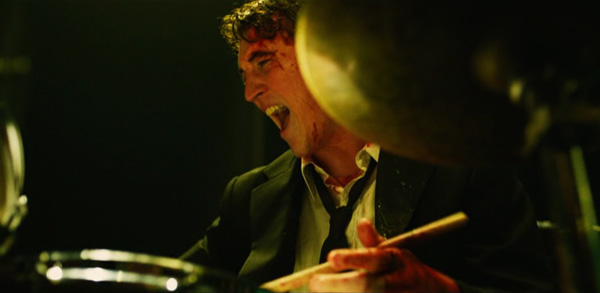 For those who know me or listen to me on HR Happy Hour, you’ll know that each year, I rush out and binge on as many of the Oscar-nominated movies as I can. There is something magnetic about a movie intended to make you really think compared to all the summer blockbuster action movies that are just around the bend. Well, this time last year, I had the pleasure of watching Whiplash. It’s a movie about the complex relationship between a student and his conductor of a jazz band. But more than that, my takeaway then was that it’s about the need to go through harsh feedback and sometimes pain in order to develop.
For those who know me or listen to me on HR Happy Hour, you’ll know that each year, I rush out and binge on as many of the Oscar-nominated movies as I can. There is something magnetic about a movie intended to make you really think compared to all the summer blockbuster action movies that are just around the bend. Well, this time last year, I had the pleasure of watching Whiplash. It’s a movie about the complex relationship between a student and his conductor of a jazz band. But more than that, my takeaway then was that it’s about the need to go through harsh feedback and sometimes pain in order to develop.
When I wrote Cringeworthy Feedback: How to Take it and How to Dish it Out, I was so close to seeing the film that it was all I could think about. Now, a year later and after watching the movie a few more times, I see it’s like an onion and I’m peeling the multitude of layers back to reveal even more significant meaning. So you see, it’s the perfect Oscar movie because it continues to make me think about what lessons come from examining the relationships. Dr. Matt Stollak, beloved friend and professor at St. Norbert College, shared an article with me that made me want to revisit some of the themes from Whiplash. The article he shared was a review by Matt Zoller Seitz called 30 Minutes on Whiplash. In his article, Matt says:
“This formulation is insidious, cruel, reductive, joyless. It turns the pursuit of artistic excellence into a referendum on the ability to endure shame, rejection, public humiliation, doubt and physical punishment. It’s as singleminded in equating endurance and transcendence as Mel Gibson’s “The Passion of the Christ.” Nevertheless, as a indicator of future success, the ability to withstand suffering is hard to beat. It might in fact be the skeleton that supports the flesh of genius.”
As I read that, I focused on the suffering. Do we need to suffer for our art? Do we need to suffer in order to experience greatness and excellence?
I don’t believe I’ve ever thought about these questions in relation to greatness or excellence at work. I’ve had a more practical approach and that is if you work hard, it leads to success and excellence at work. When I really think about those key moments in my life that made a difference in the way my work habits developed, they involve failure. They involved hardship, doubt, insecurity and many feelings that are negative. From that, the work that was forged became more meaningful to me because I felt that I really had to work even harder to overcome the obstacles. I wonder if I would have achieved many of the successes I have without the hardships.
I think not.
So, what about you? If you have reached levels of excellence in your career that you’re proud of, were you able to get there without suffering? I’d love to hear your perspectives in the comments….

